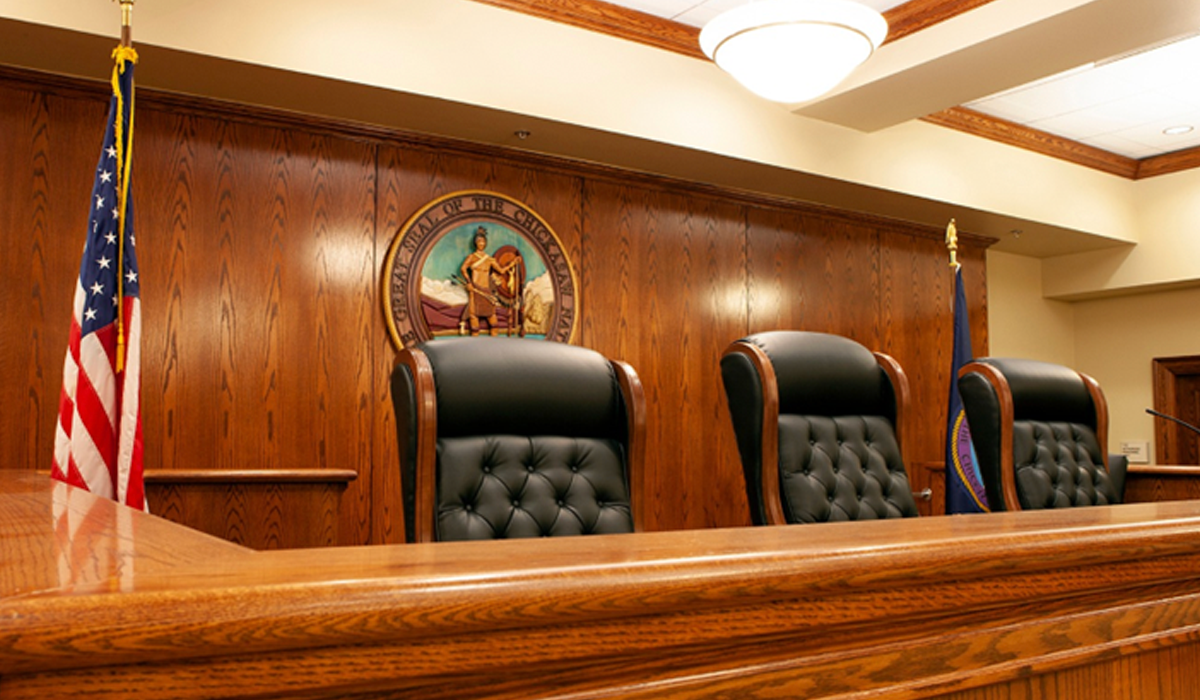2021 court decision cemented tribal sovereignty
Chickasaw Nation
On March 11, 2021, we mark an important milestone in the work to protect Chickasaw Nation sovereignty: Judicial affirmation of the Chickasaw Nation’s treaty territory as a “reservation,” which is a form of Indian country under federal law.
Immediately following the recognition of the Chickasaw Nation’s reservation, Chickasaw Nation Governor Bill Anoatubby issued a proclamation that declared, in part, that the ruling “set forth what the Chickasaw people have always known … we remain a self-governing Tribal nation.”
Tragic though it was, the catalyst for this heralded event was a court battle involving a heinous crime committed by a non-Native against three Chickasaw citizens in June 2010.
Shaun Michael Bosse, a non-Native, had been earlier convicted for the brutal killings of Chickasaw citizens Katrina Griffin, 24, her son, 8-year-old Christian and her daughter, 6-year-old Chastity Hammer, in Purcell, Oklahoma.
“Our hearts remain steadfast with the family this man victimized,” Governor Anoatubby said at the time, and promised the tribe “will continue our efforts to see justice done for the victim’s family.” Governor Anoatubby followed through on this pledge.
The court battle turned on Mr. Bosse’s attempt to take advantage of the Chickasaw Nation’s sovereignty and the Native status of his victims. He argued that the Chickasaw Nation’s treaty territory was and remains a “reservation,” or Indian country, for purposes of determining jurisdiction to punish his crimes. The court agreed and held that the Chickasaw Nation continues to possess, as a sovereign entity, a reservation that was established by Congress in accord with our treaties and that, as such, it remains Indian country for purposes of criminal jurisdiction. This ruling caused a massive increase in what had been understood to be Chickasaw Nation Indian country, with direct consequence on the reach of Tribal, Federal, and State criminal jurisdiction. Nonetheless, Mr. Bosse’s attempt to evade justice for his brutality by seeking to deprive the Oklahoma court of power over him ultimately failed, and today he remains sentenced to death for his crimes.
Factored into the court’s decision was an earlier case that strongly affirmed basic principles also critical to securing tribal sovereignty, McGirt v. Oklahoma. In it, Seminole Nation citizen Jimcy McGirt argued his Native heritage and the fact his crime was committed on the Muscogee reservation meant the state of Oklahoma did not have jurisdiction.
The U.S. Supreme Court agreed.
The Bosse decision clarified that while the McGirt ruling involved only the Muscogee reservation, its reasoning also applied to the Chickasaw, Cherokee, Choctaw and Seminole reservations.
If there was ever a question about the Chickasaw Nation being a sovereign entity, it was forever put to rest.
The ruling that affirmed the Chickasaw Nation’s reservation, like several others, relied on the U.S. Supreme Court’s earlier ruling in McGirt, which arose in the Muscogee (Creek) Nation’s reservation and offered the Supreme Court’s full-throated affirmation of the continuing vitality of Tribal treaties in this area of the law. Today, including the judicial affirmations of the Chickasaw Nation’s and Muscogee (Creek) Nation’s reservations, courts have recognized eight separate and continuing reservations in Oklahoma. While these rulings offer tremendous support for Tribal rights to self-government and opportunities for the expanded exercise of Tribal sovereignty, they carry also immense responsibilities. And when the Chickasaw Nation turned to rise to those responsibilities, it worked to foster cross-jurisdictional cooperation in the interest of the public’s safety. For example, in executive directives issued March 11, 2021, Governor Anoatubby directed the Chickasaw Nation’s criminal justice officials to work toward “effective, efficient, and durable cross-commissioning of policing services throughout the Chickasaw Nation” as well as appropriate “prosecutorial authorizations to ensure all crimes committed within our boundaries are properly prosecuted and justice is served.”
But that’s not all. To increase the measure of justice available within the Chickasaw Nation system, Governor Anoatubby also called for the expansion of services intended to offer “restorative justice and mechanisms designed to help both victims and perpetrators to return to productive engagement within our community.”
Debra Gee, Chickasaw Nation Chief Counsel in the Office of Tribal Justice Administration, agrees much has changed.
“In 2021, we were working with just one part-time attorney who served as a prosecutor,” Gee said. “In 2021, we moved to being a full-time prosecution office.”
Gee said the department currently employs eight full-time prosecutors. The department, including support staff, now totals 39 employees. Prior to these court decisions, her department averaged approximately 80 prosecutions a year. Prosecutions now average approximately 2,000 a year.
“Once an arrest has been made by either Chickasaw Lighthorse police or a cross-commission officer of the Chickasaw Nation, we are the prosecutors. We file cases that are submitted to us. We’ll have arrestees who come from all parts of the Chickasaw Nation territory,” she said.
Chickasaw Lighthorse Police Commissioner Randy Wesley says his force has seen dramatic changes in recent years to accommodate the increased responsibilities, as well.
“The McGirt decision had a huge impact,” Wesley said. “We had about 65 officers when the McGirt decision was handed down.” Today, he said, that number has increased to 105 officers.
Two other metrics reveal the differences between pre-McGirt and the post-McGirt ruling. Calls for service in 2020 were just more than 24,600. In 2023 that number jumped to 35,750. Community policing events have skyrocketed from 38 in 2020 to 294 last year.
Gee says communication with other law enforcement agencies is key.
“We’ve had to do outreach to law enforcement agencies to let them know our process, which has evolved over time. And even before March 2021, we produced written documents to each of the agencies on how to contact us.
“There are 13 counties, and each of those counties has law enforcement agencies and city police. We have 79 cross-commission agreements, and each of those 79 agencies has officers who write reports and submit those to us.”
More serious crimes are often brought to the attention of the U.S. Attorney’s office where the penalties can be harsher than the three-year limit on sentences a Tribal court can impose for any single offense.
“We work closely with the U.S. Attorney’s office,” Gee said. “We have a tribal special Assistant U.S. Attorney at the U.S. Attorney’s office in the western district who prosecutes in federal and tribal court.”
In line with Governor Anoatubby’s executive directives, imprisonment is not the end of the process. Gee says concentrated effort goes into restoration.
“We’re implementing alternatives to incarceration with our healing to wellness court and our truancy court,” Gee said. “We’re trying to implement alternatives rather than just locking people up and not doing anything to improve their lives or rehabilitating them.
“That is something we are doing in this office as well as working with other internal offices like family services and their mental health team. There are a lot of things still to be done, but we’ve come a long way since 2021.”


